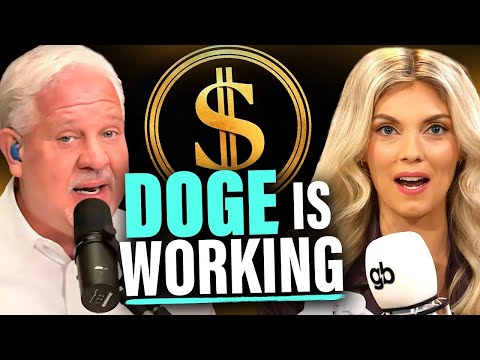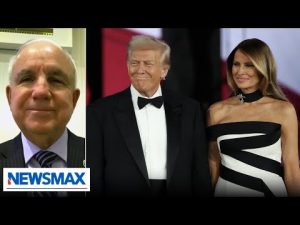**The Roiling Waters of the Republican Party: Clash or Collaboration?**
In the ever-dynamic world of politics, chaos seems to reign supreme, especially within the Republican Party. Recently, what many dubbed a “circular firing squad” emerged as notable figures like Chip Roy, Donald Trump, and entrepreneur Elon Musk found themselves at odds. But rather than viewing this as an outright disaster, some are choosing to see it as an invigorating debate about the future trajectory of the party. After months of grappling with deep moral dilemmas, today’s squabbles are less about existential threats and more about the nuances of making America financially sound again.
Just a couple of months prior, Republicans were navigating the tumultuous waters of good versus evil—a dramatic backdrop to nearly every public discussion. Now, however, the stakes appear to have shifted to “good versus better.” This is an encouraging evolution that reflects a healthy debate about policy priorities. Those who have long cherished the idea of fiscal conservatism may find a silver lining here amid the shouting and disagreements. It seems as though the party is showcasing a competitive spirit that, although messy, may ultimately serve to strengthen its foundations.
Recent developments began with the tumult surrounding Speaker Mike Johnson’s proposed bill, which many conservatives viewed as a veritable disaster. Thankfully, that particular proposal was shot down. In its place, a second bill emerged that, while it raised the debt ceiling by a staggering $5 trillion, stripped away some of the more contentious elements that had some conservatives up in arms. The pressure has been mounting for action to avoid pivotal economic setbacks, especially with a June or July deadline looming.
As the dust settled around this recent fiscal debate, certain factions emerged. Conservatives like Chip Roy were vocal in their opposition, arguing for an end to the relentless upward spiral of the debt ceiling. They contend that allowing such increases equates to fiscal irresponsibility and sets a poor precedent. Yet, amid all this contention, voices like Trump and Musk have surfaced, advocating for an alarming, yet necessary approach—unorthodox transparency. Both believe that revealing the nitty-gritty of government spending can empower the electorate to hold their representatives accountable.
With their combined clout, Trump and Musk seem determined to revolutionize how Congress handles finances, compelling lawmakers to fundamentally rethink their strategies. While one could argue that their plans may be disruptive, it’s worthwhile to note that disruption can pave the way for much-needed change. Trump, having weathered countless storms both personally and politically, has reportedly embraced a new mindset—one that recognizes the urgency of reigning in government spending. Musk, on the other hand, has scaled major enterprises down and even culled what he deemed excessive.
However, all this chatter and contention begs the question: how can a party rife with disagreement find common ground? For many, uniting under the banner of fiscal responsibility might be the answer. Every family and business grappling with debt knows the importance of making tough financial choices. Trump’s promise to cut excess spending resonates strongly, especially in a climate where every cent of taxpayer money is under scrutiny. Nevertheless, it’s essential to remember that skepticism surrounding any governmental promises still runs deep. After all, Washington has a notorious track record of promises made but not always kept.
In light of what is shaping up to be a transformative period for the Republican Party, it’s easy to see both sides of the debate. On one hand, proponents of drastic cuts emphasize urgency and accountability; on the other, leaders like Trump and Musk show a pragmatic need to stabilize before cutting government operations down to size. Could this mean that, perhaps, collaboration, even amidst contention, offers the best path forward? It seems the Republican Party is indeed at a crossroads, and navigating this dynamic landscape is essential, not only for party unity but for the future economic health of the nation. So, for now, buckle up—this tumultuous ride is far from over.



